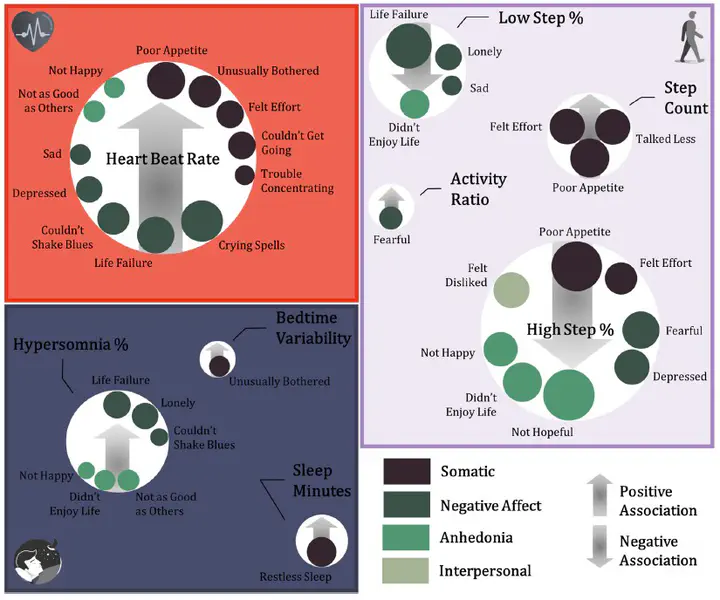Depression deconstructed: Wearables and passive digital phenotyping for analyzing individual symptoms

Abstract
Wearable technology enables unobtrusive collection of longitudinally dense data, allowing for continuous monitoring of physiology and behavior. These digital phenotypes, or device-based indicators, are frequently leveraged to study depression. However, they are usually considered alongside questionnaire sum-scores which collapse the symptomatic gamut into a general representation of severity. To explore the contributions of passive sensing streams more precisely, associations of nine passive sensing-derived features with self-report responses to Center for Epidemiologic Studies Depression (CES-D) items were modeled. Using data from the NetHealth study on N=469 college students, this work generated mixed ordinal logistic regression models to summarize contributions of pulse, movement, and sleep data to depression symptom detection. Emphasizing the importance of the college context, wearable features displayed unique and complementary properties in their heterogeneously significant associations with CES-D items. This work provides conceptual and exploratory blueprints for a reductionist approach to modeling depression within passive sensing research.